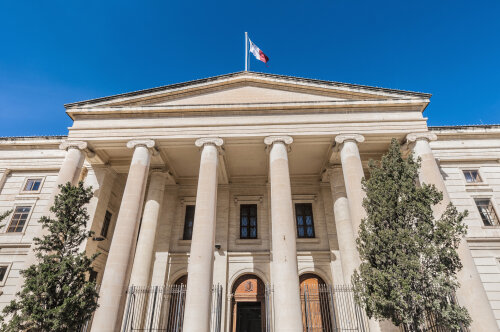Best Arrests & Searches Lawyers in Birkirkara
Share your needs with us, get contacted by law firms.
Free. Takes 2 min.
List of the best lawyers in Birkirkara, Malta
About Arrests & Searches Law in Birkirkara, Malta
Arrests and searches in Birkirkara, Malta, are governed by a combination of Maltese law, primarily stemming from the Criminal Code and relevant judicial precedents. These laws lay down the protocols and protections related to the detention of individuals and the search of property. The primary focus is to balance the need for law enforcement with the protection of individual rights. Residents should be aware of their rights and the legal procedures to ensure these standards are adhered to by law enforcement agencies.
Why You May Need a Lawyer
There are several situations where a person may require legal assistance related to arrests and searches:
- False Arrest: If you believe you’ve been wrongfully detained without probable cause.
- Unlawful Searches: If you suspect that a search was carried out without the proper legal warrant or justification.
- Legal Representation: Ensuring that your rights are protected during questioning or court proceedings.
- Understanding Your Rights: Gaining clarity on your legal rights and obligations during an encounter with law enforcement.
- Filing Complaints: Taking appropriate action if you’ve been mistreated or your rights have been violated by the authorities.
Local Laws Overview
The key aspects of local laws related to arrests and searches in Birkirkara, Malta, include:
- Arrest: The Maltese Criminal Code outlines that an arrest should only be performed if there is sufficient reason to believe that person has committed or is about to commit an offense. The arrested individual must be informed of the reasons for their arrest promptly.
- Search Warrants: For a search to be legally conducted, it must usually be backed by a warrant issued by a competent authority. The warrant must specify the place to be searched and the objects sought.
- Individual Rights: Detainees have the right to legal counsel, to be informed of their charges, and to be treated with dignity to avoid unlawful detention practices.
- Duration of Detention: There are legal time limits for how long an individual can be held in custody without formal charges.
- Evidence Handling: Laws dictate proper protocols for handling and storing evidence obtained during a search, to ensure its admissibility in court.
Frequently Asked Questions
What should I do if I am arrested?
Stay calm and comply with the officers. Request to speak with a lawyer and avoid making any statements until you’ve received legal advice.
Can the police search my home without a warrant?
In general, the police require a search warrant to search your home unless there are exigent circumstances, such as an immediate threat to safety or the need to prevent the destruction of evidence.
What are my rights during an arrest?
You have the right to be informed of the reasons for your arrest, the right to remain silent, and the right to legal representation.
How long can I be held in custody without being charged?
Under Maltese law, an individual can generally be held for up to 48 hours without being charged. After that, they must either be charged or released.
What is considered an unlawful search?
A search is considered unlawful if it is conducted without a valid warrant, without probable cause, or without exigent circumstances that justify a warrantless search.
Can I refuse a search?
You can refuse a search if the officers do not have a warrant or legal grounds. However, it is essential to express your refusal calmly and respectfully, and you should not physically resist a search.
What should I do if I believe my rights were violated during a search?
Document the details of the incident as thoroughly as possible and contact a lawyer to discuss the next steps, which may include filing a formal complaint or taking legal action.
Do I have to answer police questions during a search?
No, you have the right to remain silent and should consider consulting with a lawyer before answering any questions.
Can evidence obtained unlawfully be used against me in court?
Evidence obtained through an unlawful search or seizure is generally inadmissible in court, but this should be argued by your legal counsel during proceedings.
How can I find a lawyer specializing in arrests and searches?
You can contact the Chamber of Advocates in Malta, ask for referrals from friends or family, or search for legal professionals with expertise in criminal law and constitutional rights.
Additional Resources
Consider consulting the following resources if you need further information or assistance:
- The Malta Police Force: Information on your legal rights and how to file complaints.
- The Chamber of Advocates (Malta): A professional body for lawyers in Malta that can help you find a qualified lawyer.
- Maltese Judiciary Portal: Access to legal texts, court judgments, and judicial resources.
- Legal Aid Malta: Providing legal services to those who cannot afford private representation.
- Know Your Rights Guides: Publications detailing citizen rights during arrests and searches.
Next Steps
If you need legal assistance regarding an arrest or search in Birkirkara, Malta:
- Contact a lawyer with expertise in criminal law and constitutional rights.
- Prepare all relevant documentation related to your case, such as any warrants, arrest reports, or evidence logs.
- Memorize and document all details of the incident, including the names and badge numbers of the officers involved.
- Understand your rights and any legal obligations you may have.
- Follow up with any relevant organizations or advocacy groups for additional support and information.
Lawzana helps you find the best lawyers and law firms in Birkirkara through a curated and pre-screened list of qualified legal professionals. Our platform offers rankings and detailed profiles of attorneys and law firms, allowing you to compare based on practice areas, including Arrests & Searches, experience, and client feedback.
Each profile includes a description of the firm's areas of practice, client reviews, team members and partners, year of establishment, spoken languages, office locations, contact information, social media presence, and any published articles or resources. Most firms on our platform speak English and are experienced in both local and international legal matters.
Get a quote from top-rated law firms in Birkirkara, Malta — quickly, securely, and without unnecessary hassle.
Disclaimer:
The information provided on this page is for general informational purposes only and does not constitute legal advice. While we strive to ensure the accuracy and relevance of the content, legal information may change over time, and interpretations of the law can vary. You should always consult with a qualified legal professional for advice specific to your situation.
We disclaim all liability for actions taken or not taken based on the content of this page. If you believe any information is incorrect or outdated, please contact us, and we will review and update it where appropriate.










